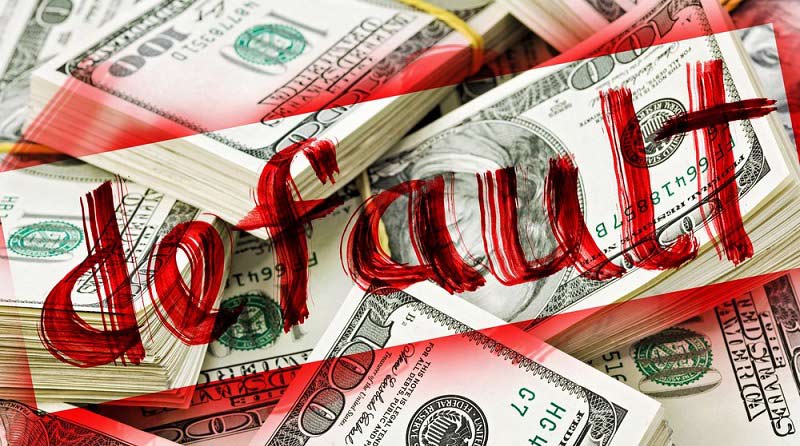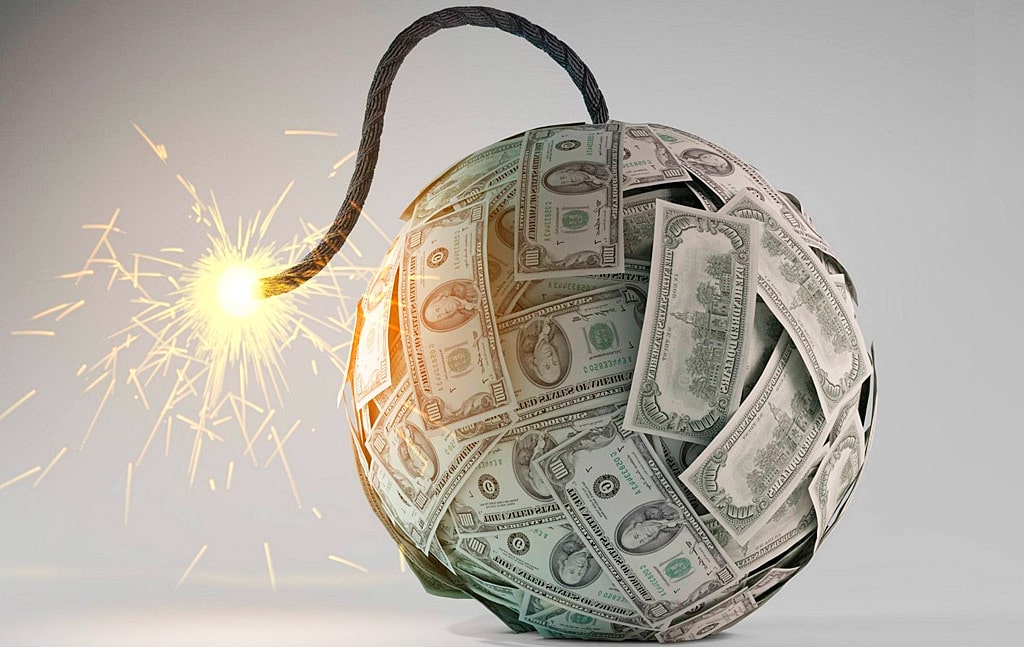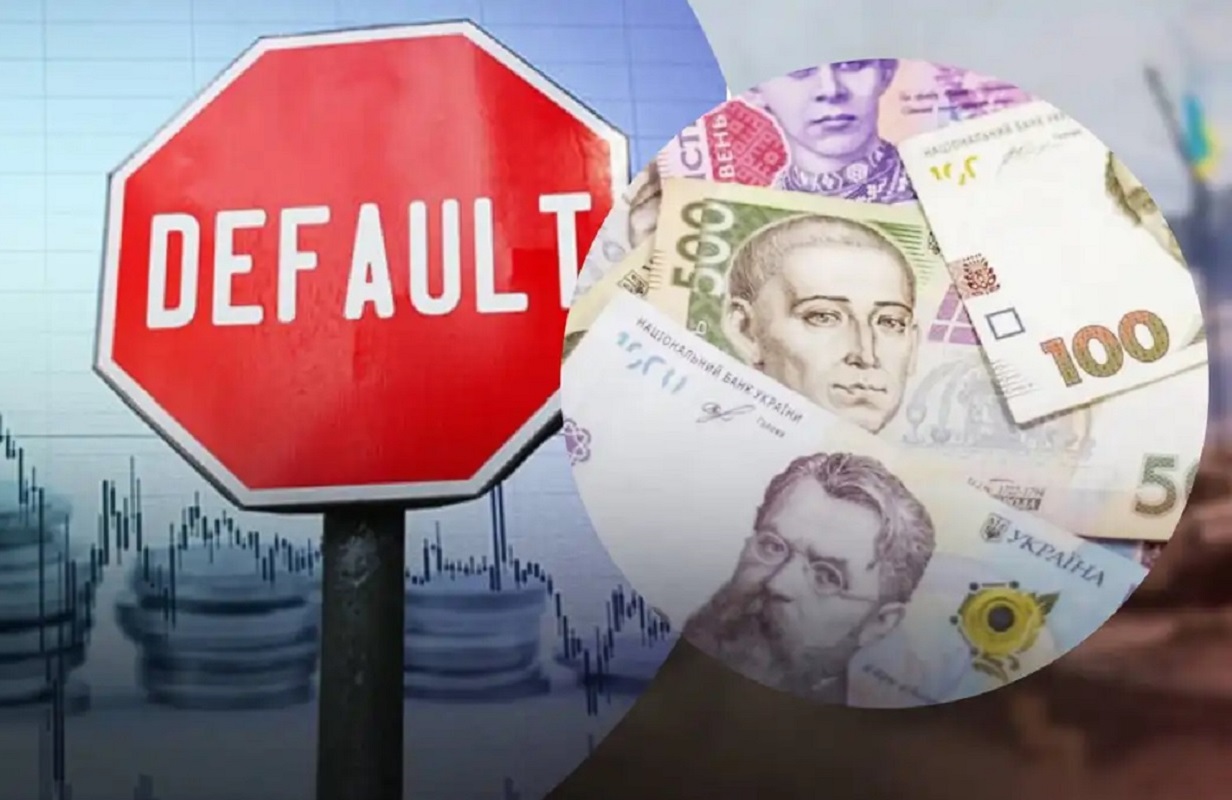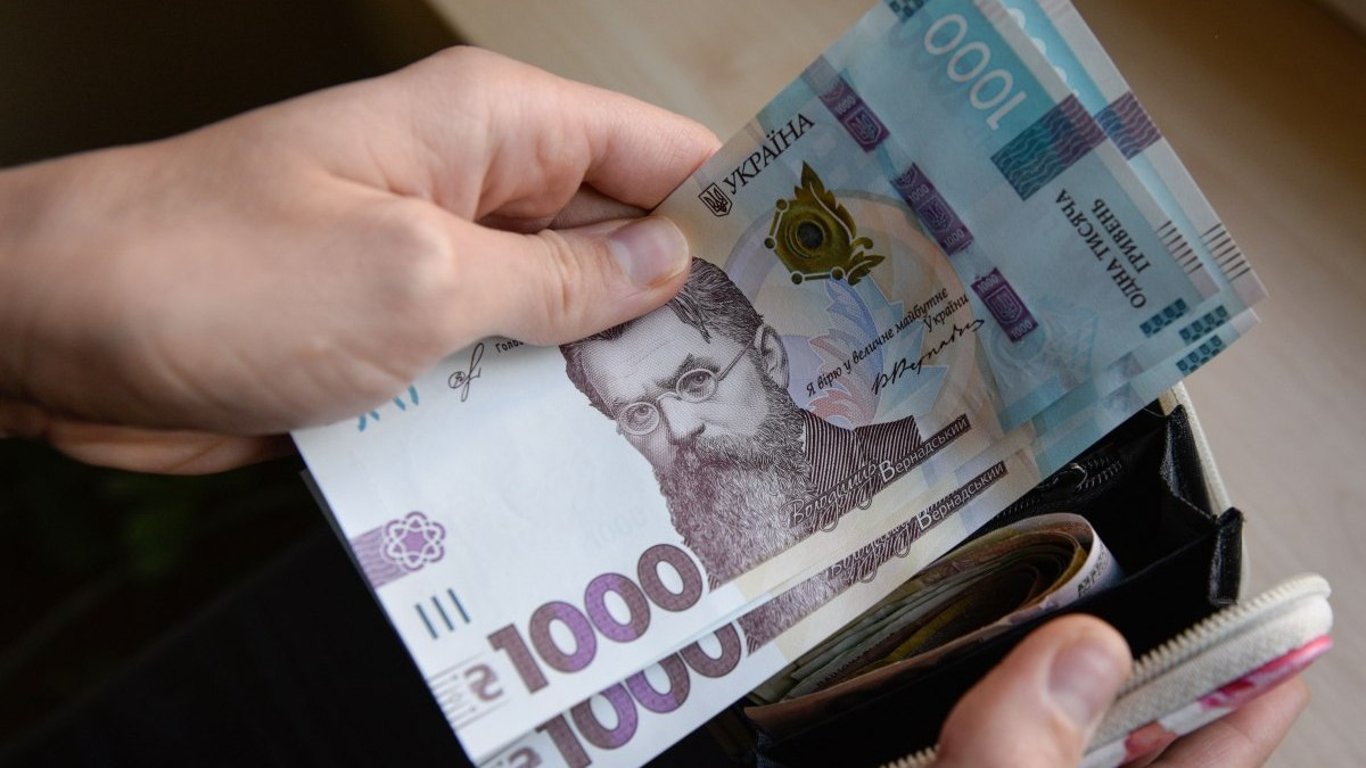What is default in a country and what does it mean for people.


It is hard to find a more relevant topic in the field of finance in Ukraine than default in the country, what it means and what it will bring. After all, by the end of summer 2024, such a threat looms over the country's economy.
First of all, it is essential to clarify what default on external debt is and how it can affect the average Ukrainian (essentially, what default means for people). Therefore, we need to understand the term default and its inevitable stages.
Default, what does this word mean: complex in simple words
Let’s start with the theory: a country’s default is the inability of the state to fulfill its debt obligations, that is, to pay back the debt or the interest on it. At the very beginning of the war, the first rumors about the possibility of default arose, and already then there were incredibly many horror stories "default, what is it and what does it threaten with". However, we must immediately distinguish between what this means for the state and what it means for people.

Default, what is it in simple words: many countries have their so-called external obligation. There are obligations related to these debts, that is, terms of repayment. It relates not only to the debt but also to the interest on the debt, which also needs to be paid. Essentially, like any loan. The state has its deadlines for when this debt needs to be repaid, along with the interests. If this is not done, the country essentially fails to repay the loan, and this state is called default.
Default can be internal (failure to fulfill obligations to domestic creditors) or external (failure to fulfill obligations to foreign creditors). In simple terms, although default is quite understandable, it is a very diverse process.

At once, it should be noted what causes there can be for default. The most popular option will certainly be economic problems. Economic decline, GDP fall, increase in unemployment, and decrease in budget revenues can lead to a shortage of funds to pay off debts. This is quite a prolonged and systematic process. It doesn’t happen in a day or even in a month. Hence one of the characteristics of default. It is a lengthy and very consistent process.
The second reason why default can happen is currency instability. A sharp depreciation of the national currency increases the cost of servicing debt denominated in foreign currency, which can become the reason why a country will have to declare its default.
Additional reasons for default:
-
Political instability. Political crises can negatively affect the economy and reduce opportunities for debt repayments.
-
Management errors. Incompetent financial management and ineffective fiscal policy can exacerbate financial problems.
All these factors, alone or in combination, can cause default.
Consequences of default
Almost immediately, it is necessary to discuss the possible consequences of default. These are primarily important for the state. First of all, it concerns economic decline. Default usually leads to a significant reduction in economic activity, rising unemployment, and falling incomes of the population.

Almost immediately, the national currency depreciates. A loss of confidence in the country’s economy and finance can lead to a sharp drop in the exchange rate of the national currency. This is almost inevitable.
The next thing to be wary of is inflation. Currency depreciation can lead to a sharp increase in prices for imported goods and a general rise in inflation. This will cause a decrease in the standard of living for the portion of citizens receiving state benefits.

Almost immediately, there will be a drop in credit ratings. Credit agencies lower the ratings of countries that have experienced default, complicating access to international financial markets and increasing borrowing costs in the future. This process is especially dangerous for the state. It entails the loss of capital. Foreign investors may begin to withdraw their funds from the country, exacerbating financial problems. And this process is also quite understandable and inevitable.
Social and political consequences
In addition to the economic background, the social sphere of life will be immediately affected. Inflation will immediately lead to a certain depreciation of wage levels, pensions, and social benefits. Usually, each year there is indexing of such benefits considering inflation, which will be difficult under the conditions of war and additional default. Without investment from foreign companies, the social sector will be even more shaken.
Almost simultaneously, the economic decline and inflation lead to a decrease in the standard of living of the population, an increase in poverty, and social tension. This process cannot be halted without indexing as a compensation mechanism, but to index, one conditionally needs to take this money from the budget. Again, there are complications with this. Essentially, default is a vicious circle where one needs to compensate with what is absent and what initially created the conditions for default.

In combination with economic and social issues, political instability will inevitably begin. Social and economic difficulties may provoke public discontent and lead to political crises and government changes. Suppressing such unrest in the case of default is practically an impossible task. It requires the development of an entirely new strategy, and doing so against a backdrop of distrust in political forces is even more challenging.
Stories of Defaults
In international practice, default is not such a rare occurrence. And while it only threatens Ukraine, there are countries where one can examine all aspects of default and its consequences on various spheres of life.
For example, in 2001 Argentina declared a default on its external obligations. This inevitably led to a deep economic crisis, a falling GDP, and mass protests. It is hard to judge how much the country has managed to overcome all the consequences of default over the past 20 years, but the fact that the standard of living in Argentina is still quite low remains a sad fact.
From more recent examples is Greece. Greece's default on obligations to the IMF and ECB led to severe austerity measures, cuts in social programs, and a worsening economic situation in the country in 2015.
Speaking of the possibility of default in Ukraine due to the attack from Russia, it should be noted that Russia also experienced a default (in 1998). At that Time, Russia's default on internal debt caused the depreciation of the ruble, an increase in inflation, and an economic decline that required significant efforts to restore the economy.
From these simple examples, it is clear that a country’s default is a serious event with far-reaching economic, social, and political consequences. It can lead to significant economic difficulties, currency depreciation, inflation, a decrease in living standards, and political instability.
In turn, Ukraine's default in 2024 could lead to serious economic, social, and political consequences in those sectors of the economy that are weakened by prolonged war. In this case, the country will inevitably face a sharp economic downturn, inflation, devaluation of the hryvnia, rising unemployment, and a decrease in living standards of the population. All this will "collide" with a large number of Ukrainians migrating to other countries, which will further exacerbate the situation.
Read also
- Leaped forward — how prices for apartments in Uzhhorod have soared
- New report for individual entrepreneurs - which document needs to be submitted and to whom
- Police Salary Structure — What It Consists Of in 2025
- Sell copper on OLX — what is happening with scrap prices in July
- The wallet is not holding—what products have risen in price the most
- Severance Payments for Employees — What to Consider in 2025









